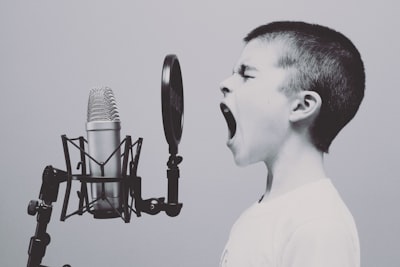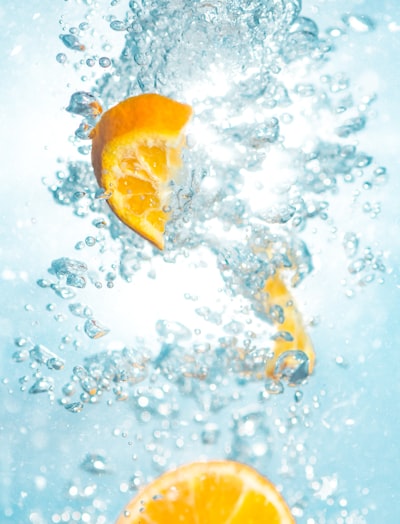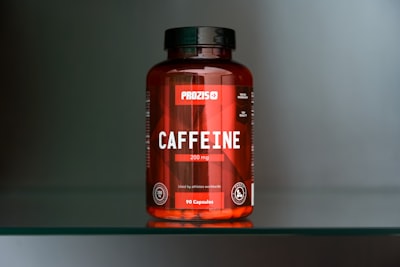How to Achieve Vocal Hydration for Singers
Picture this: You’re about to hit that high note in your favorite song, but your throat feels like sandpaper. Ouch, not a good feeling! Drinking plenty o' water or proven electrolyte IV drink solution is crucial for singers to keep their vocal cords hydrated and healthy. In today's post, we will dive deep into the importance of vocal hydration for singers, the science behind it, and the consequences of inadequate hydration on your performance and long-term health. We’ll also give you some tips on how much water you should drink, effective ways to promote hydration, and why you should limit caffeine and alcohol intake. Plus, we’ll discuss the role of humidifiers and even hydrating sprays to keep your voice in tip-top shape. So let’s explore why hydration matters when singing and let's hit those high notes with ease with this ultimate guide!
Understanding the Importance of Vocal Hydration
Alright, let's dive into the importance of vocal hydration for all you singers out there! We all know that staying hydrated throughout the day is crucial for our overall health, but did you know it's equally important for maintaining your vocal health and performance? Yeah, that's right!
When you hydrate properly, it helps to keep your vocal cords nice and lubricated, which in turn keeps them flexible. And trust me, you want those vocal cords to be as nimble as can be when you're belting out those high notes. Proper hydration also supports the overall function of your vocal folds and prevents dryness. No one wants a desert in their voice box, right?
But here's the real kicker - good hydration actually improves the efficiency of your vocal fold vibrations when you're singing. Think of it like adding a little extra juice to your voice production. And who wouldn't want that? Plus, staying well-hydrated reduces the risk of vocal fatigue, so you can sing your heart out without feeling like a deflated balloon afterwards.
So, my vocalists, remember to drink your daily water and keep that vocalis muscle happy. Skip the caffeinated beverages and opt for a lot of water instead. Trust me, your voice will thank you for it! Just think of your larynx as a complex structure that needs some TLC to keep it in tip-top shape. Stay hydrated, my friends!
The Science Behind Hydration and Vocal Health
Alright, folks, let's dive into the science behind hydration and vocal health. When it comes to singing, staying hydrated is crucial. It's not just about quenching your thirst; it actually affects the mucosa of your vocal folds. Adequate hydration ensures optimal vocal fold vibration, leading to smooth and accurate voice production. Drinking enough water helps maintain a thin layer of mucus on your vocal cords, keeping them lubricated and preventing dryness. Plus, good hydration supports the elasticity of your vocal tissues, ensuring your voice remains flexible and agile. So, keep that daily water intake up, vocalists!
Consequences of Inadequate Hydration in Singers
So, let's talk about what happens when singers don't stay properly hydrated. And trust me, it's not pretty. Insufficient hydration can really mess with your vocals, causing strain and hoarseness that no one wants. Not to mention, dehydration can limit your vocal endurance and range, making it harder to hit those high notes. And if that's not enough, inadequate water intake increases the risk of damage to your precious vocal cords. Talk about a nightmare! Plus, lack of hydration can leave you feeling fatigued and dried out, which is the last thing you want when you're trying to belt out those tunes. And hey, poor vocal hydration may even contribute to the development of vocal nodules or polyps – not exactly something you want hanging around in your vocal cords. So, ensure you're drinking enough water and taking care of your voice, because it's a delicate instrument that deserves some love and attention.
Impact on Vocal Performance
Oh, vocal hydration, it's like a magic potion for singers! You know, proper hydration not only makes your voice sound amazing, but it also boosts your vocal performance. When you keep your whole body hydrated with daily water intake, your vocal cords stay happy and healthy. And trust me, happy vocal cords mean enhanced resonance and projection. It's like your voice gets this superpower to smoothly transition between notes, with perfect pitch control. Plus, staying hydrated improves articulation and reduces the strain on your vocal cords. So, sip that water and watch your voice shine like a superstar!
Long-Term Health Risks
Alright, let's get real for a second. We all know that vocalists need good hydration to keep their pipes in tip-top shape. But what happens when they don't give their vocal cords the love they deserve? Well, here's the deal: chronic dehydration can wreak havoc on those delicate little vocal folds. It can lead to all sorts of long-term health risks, like vocal cord injuries and chronic voice disorders. And let's not forget about the potential development of vocal nodules or cysts due to inadequate vocal hydration. Yikes! Plus, poor hydration can cause vocal cord thickening, which means reduced vocal range. And nobody wants that! So, bottom line, drink up, my friends, because good hydration is the key to keeping your singing voice happy and healthy. Let's raise a cup of water (or maybe even a decaf cup of coffee) to vocal fold hydration!
How Much Water Should A Singer Drink?
To maintain optimal vocal health, singers should aim for a recommended water intake of 8-10 cups (64-80 ounces) per day. Factors such as body size, activity level, and climate play a role in determining hydration needs. It's important to hydrate throughout the day, not just before performances, and choose plain water as the primary source of hydration.
Recommended Intake for Optimal Vocal Health
You know what's important for vocalists? Daily water intake. Yeah, the entire body needs to stay hydrated, including those vocal folds. So, how much water should you actually be chugging? Well, it varies, but aim for around 8-10 cups a day. And hey, don't forget about hydrating foods like watermelons, cucumbers, and broccoli. They can contribute to vocal hydration too. Electrolyte-rich drinks are also great for maintaining fluid balance. Just make sure to avoid excessive caffeine and alcoholic beverages. They can really dehydrate your precious voice box. Trust me, good hydration is key for healthy mucus production in that complex structure of yours, the vocal tract. So, drink up and keep those vibrations smooth!
Effective Tips to Promote Vocal Hydration
1. Water Bottles - Always keep a water bottle handy and sip on it throughout the day to stay hydrated. Don't be caught without your daily water fix!
2. Clean Water - Ensure that you're getting clean and pure drinking water or IV drink/electrolyte drink by using a water filter. No questionable water for our vocalists!
3. High Intake - Increase your fluid intake, especially in dry or arid environments. Stay ahead of the game and keep that hydration flowing.
4. Avoid Alcohol/Caffeine - Keep in mind that excessive alcohol and caffeine consumption can actually dehydrate your body. So, maybe swap that cup of coffee for a nice big glass of water pre-performance!
5. Humidifiers - Consider using a humidifier in your living environment to maintain optimal humidity levels for your vocal health. Your vocal folds will thank you for it.
Choosing Hydrating Food and Drinks
When it comes to choosing what to eat and drink for vocal hydration, there are a few things vocalists should keep in mind. First, opt for hydrating beverages like water, herbal tea, or infused water. These will help keep your entire body hydrated, including your vocal cords. You can also consume fruits and vegetables with high water content, such as watermelon and cauliflower, to boost hydration. Foods rich in potassium, like bananas, can also support proper hydration. On the flip side, it's best to avoid excessive intake of sugary or carbonated drinks, as they can dehydrate you. Lastly, hydrating soups and broths can provide additional vocal moisture. So, choose wisely and keep your singing voice happy and hydrated!
Healthy Habits for Adequate Hydration
So, you're a singer, huh? Well, if you want to keep that silky smooth voice of yours in tip-top shape, you better start paying attention to hydration. It may seem like a no-brainer, but trust me, it's easy to forget to drink enough water throughout the day. That's why setting reminders or using those fancy hydration apps can be a lifesaver. And when it comes to singing, make sure you're chugging that H2O before, during, and after your performances. Oh, and keep an eye out for signs of dehydration like a dry mouth or feeling thirsty – not cool for a vocalist like you. And hey, let's not forget about monitoring the color of your pee. Yeah, I said it. It can actually tell you a lot about your hydration levels. So, drink up, my friend, because vocal hydration is the key to keeping that voice box of yours in tip-top shape.
Role of Humidifiers in Maintaining Vocal Hydration
Ah, the role of humidifiers in keeping those vocal cords nice and hydrated! These nifty devices work wonders by maintaining optimal humidity levels, preventing dryness and irritation. No more sounding like a gravelly mess! Humidifiers are the secret weapon against vocal fatigue and hoarseness. They ensure that your vocal folds can vibrate smoothly, leading to better voice production. Especially in dry environments or during the winter months, when moisture is as scarce as common sense, humidifiers are a godsend for vocalists. So, if you want your singing voice to sound smoother than a jello party, invest in a good humidifier and keep those vocal cords well-hydrated. Your voice box will thank you.
The Impact of Caffeine and Alcohol on Vocal Hydration
Alright, let's talk about the impact of caffeine and alcohol on vocal hydration, shall we? We all know that caffeine and alcohol can dehydrate the body, including our precious vocal cords. And let's face it, nobody wants dry vocal cords. Consuming too much caffeine or alcohol can make your vocal cords dry and inflexible, which is not ideal for any singer. These substances mess with our fluid balance and make us produce more urine, leading to dehydration. So, if you want to keep your voice box happy and hydrated, it's best to limit your intake of caffeinated beverages and alcohol. Instead, opt for good old daily water or soothing herbal teas. Cheers to a hydrated singing voice!
Why Should Singers Limit Their Caffeine and Alcohol Intake?
Reducing caffeine and alcohol intake is crucial for singers. These substances can dehydrate the vocal cords, impair performance, and increase the risk of acid reflux. Additionally, they disrupt sleep patterns, negatively impacting vocal health and recovery. Prioritizing vocal hydration by limiting caffeine and alcohol promotes overall vocal health and enhances singing abilities.
Can Hydrating Sprays Be Beneficial?
Hydrating sprays can provide benefits for singers, especially in dry or dusty conditions. These sprays are designed to moisturize the vocal cords and throat, promoting better vocal health. It is important to choose a hydrating spray specifically made for vocal hydration and consult with medical professionals before trying new vocal products.
How Does Vocal Hydration Improve Your Singing?
Adequate hydration of the vocal cords enhances singing quality by promoting proper vocal fold vibration. It allows for smoother transitions between notes, improved vocal control, and supports a wider vocal range. Additionally, hydrated vocal cords are less prone to strain, hoarseness, and fatigue, ultimately contributing to optimal singing performance.
Frequently Asked Questions
What types of drinks are good for keeping your vocal cords hydrated?
To keep your vocal cords hydrated, opt for water as the best drink. Herbal teas like licorice root or slippery elm can also help. Avoid caffeine and alcohol as they can dehydrate the body. Stick to room temperature or warm liquids to avoid shocking the vocal cords.
Can dehydration affect a singer's voice during a performance?
Dehydration can significantly impact a singer's voice during a performance. When the vocal cords are dry and irritated, it can lead to hoarseness and vocal fatigue. To maintain optimal vocal health, singers should drink plenty of water before and during their performances. Other hydrating beverages like herbal tea, coconut water, and diluted fruit juices can also be beneficial.
How can singers tell if they are properly hydrated before a performance?
To determine if you are properly hydrated before a performance, check the color of your urine (clear or light yellow is good), pay attention to any dryness in your mouth and throat (which could indicate dehydration), and make sure you drink water consistently throughout the day. Proper hydration helps prevent vocal fatigue and strain during performances.
Are there any foods or supplements that can help with vocal hydration?
Certain foods and supplements can aid in vocal hydration. Including water-rich foods like watermelon and cucumber in your diet can help hydrate the body and vocal cords. Additionally, supplements such as slippery elm and marshmallow root can soothe the throat and retain moisture. Remember to consult a healthcare professional before making any dietary or supplement changes.
What other ways can a singer keep their vocal cords hydrated besides drinking fluids?
In addition to drinking fluids, singers can maintain vocal cord hydration by using a humidifier, avoiding caffeine and alcohol, consuming water-rich foods like fruits and vegetables, and practicing good vocal hygiene. These habits promote optimal vocal health and help prevent dehydration of the vocal cords. [INSERT PRODUCT USP]
How much does a difference does hydration really make?
Proper hydration plays a crucial role in a singer's voice quality and performance. It can improve vocal range, control, and reduce strain on the vocal cords. On the other hand, dehydration can lead to dryness, hoarseness, and affect pitch accuracy. Drinking plenty of water regularly can make a significant difference in vocal performance.
Does drinking warm water lubricate the vocal cords?
Drinking warm water can help lubricate the vocal cords, which is essential for maintaining healthy vocal cords and preventing strain. It is recommended to drink room temperature or warm water instead of cold water while singing. Other beverages like herbal tea and hot lemon water can also aid in vocal hydration.
Conclusion
In conclusion, hydration plays a crucial role in maintaining vocal health for singers. Adequate hydration not only improves vocal performance but also prevents long-term health risks. It is recommended for singers to drink an optimal amount of water daily to keep their vocal cords hydrated and flexible. Additionally, choosing hydrating foods and drinks, developing healthy hydration habits, and using humidifiers can further support vocal hydration. However, it's important to limit the intake of caffeine and alcohol, as they can have a negative impact on vocal hydration. If you're looking for an extra boost, hydrating sprays can be beneficial. So remember, stay hydrated and keep your voice in tip-top shape for your next performance!
DISCLAIMER: THIS WEBSITE DOES NOT PROVIDE MEDICAL/HEALTH ADVICE
The information, including but not limited to, text, graphics, images and other material contained on this website are for informational purposes only. No material on this site is intended to be a substitute for professional medical advice, diagnosis or treatment. Always seek the advice of your physician or other qualified health care provider with any questions you may have regarding a medical condition or treatment and before undertaking a new health care regimen, and never disregard professional medical advice or delay in seeking it because of something you have read on this website.








